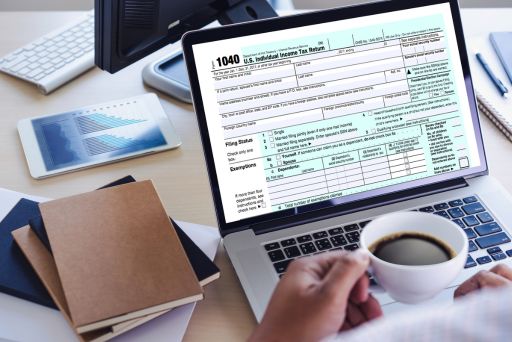It’s every business owner’s favorite time of year again! Tax season! Kidding…we know you may not love it as much as we do. But hey, if you’re already signed up with Vyde, we’ve got you covered.
Here are a dozen common and not-so-common tax deductions to get you started on your taxes:

Home Office. There are a few guidelines that go along with this deduction, but it is almost always worth the extra sorting and record keeping to get it right on your taxes. Uncle Sam says the space you claim as your “home office” must be devoted solely to your business and absolutely nothing else. If you sit on your couch and work on a laptop while watching TV, it won’t fly with the IRS. If you do have a legitimate home office, you can even write off a portion of your mortgage, insurance, and utility bills, based on the size of the space.
Office Furniture. 100% of office furniture, carpet, paint, and any improvements you’ve made to the space are tax deductible in the year you buy them. You can go that route or you can depreciate them over a course of seven years (meaning as their value lessens, you can still deduct a portion of the amount you bought them for each year.) You can use the IRS Tax Form 4562 to calculate these amounts.
Office Supplies. Even if you don’t have a home office, you’ve likely still bought supplies for your business. Think ink, paper, pens, scissors, tape, shipping supplies and notepads, highlighters, and the like. Keep your receipts; these things will help offset your taxable income.
Hardware and Software. There’s hardly a small business in existence that operates without a computer in this day and age. But this also includes other equipment like a camera, scanner, printer, laptop, webcam, Photoshop, Microsoft Office, Catch-up Bookkeeping, etc. Like office furniture, you can deduct the full amount of these things up front or you can depreciate them over five years.
Mileage. If you traveled at all for your business this year, you can deduct the costs incurred. You can either add up your mileage, parking, oil changes, tires, and other expenses and decide how much you use your car for business vs. personal use and then calculate your deduction; or you can take the standard mileage rate, which is simpler, and deduct .56 per mile for 2014.
Travel. Things get tricky tax-wise when you travel. It’s great to have a business trip/vacation, but you have to be careful. Hotel stays are 100% deductible (live it up!), but eating out is only 50% deductible (McDonald’s it is!). The cost of travel—airplane tickets, train rides, tips for a taxi driver are all 100% deductible as well.
Client Gifts. If you were an especially generous business owner this year, take those client gift receipts and use them to your advantage. The IRS allows you to deduct up to $25 per client in gifts.
Phone Charges. If you use your cell phone for business, you can claim that as a business expense. If you use your phone 50% of the time for business, you can deduct 50% of your monthly bill.
Advertising and Marketing. If you spent any money at all on advertising your business and its services, you can deduct those expenses. These usually include business cards, promotional flyers/campaigns, yellow page ads, graphic design services, marketing services, Internet ads, and the like. You can also deduct promotion costs for publicity, like sponsoring a local sports team.
Professional Fees. Accountants, lawyers, consultations, etc. are all tax deductible.
Service Fees. If you sell goods in an online story like Etsy or use Paypal to receive payments, all of those fees are tax deductible. This also includes bank fees, credit card fees, and check deposit fees.
Educational Expenses. If you took a course or bought research material to learn more about your industry, these fees are 100% tax deductible. Also consider books, manuals, local college courses, seminars, and professional publications that you may have purchased within the last year.
What tax deductions are most useful to your business? We’d love for you to share them with us!









 Another question we hear often is “If a company gives me something for doing a review for them, do I have to report it on my tax return?” For any established blogger this can be a real issue. When you start adding up everything that you’ve received for doing reviews…trips, electronics, gift cards, appliances, etc. it may become a significant amount.
Another question we hear often is “If a company gives me something for doing a review for them, do I have to report it on my tax return?” For any established blogger this can be a real issue. When you start adding up everything that you’ve received for doing reviews…trips, electronics, gift cards, appliances, etc. it may become a significant amount.






 Few business owners cite payroll as their favorite business task. In fact, it generally tops the list of least favorites. At what point does it make sense to leave it to the experts?
Few business owners cite payroll as their favorite business task. In fact, it generally tops the list of least favorites. At what point does it make sense to leave it to the experts?



